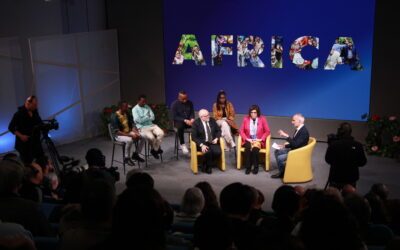Not having preferences and not expecting anything in return: this is Chiara Lubich’s straightforward but revolutionary formula for a love that can change the world – today too. “So if anyone is in Christ, there is a new creation: everything old has passed away; see, everything has become new!” (2 Cor 5:17). [These words] speak … of the ‘new self’ that, through baptism and by adhering to the fruits of baptism, has been established in us and has a new way of seeing things, of behaving and of loving. … What is this love like? … Since it is a participation in the very love that is in God, which is God himself, it differs from human love in infinite ways. But there are two aspects, above all, in which it is different. Human love makes distinctions, it has preferences, it loves some brothers and sisters, for example blood relatives, people who are educated, rich, good looking, distinguished, healthy or young; it loves those who belong to a particular ethnicity or class, but it does not love others in the same way. Divine love, instead, loves everybody. It is universal. The second difference is the fact that, in human love, we love because we are loved. And even when love is beautiful, we love something of ourselves in the other person. There is always something selfish in human love, or that waits to love only when self-interest prompts us. So if we want to let our ‘new self’ live in us; if we want to let the flame of supernatural love burn in us, we too must love everybody and be the first to love. Basically, we must be like Jesus, other Jesuses. Jesus died on the cross for everybody: his love was universal. And with that death he was the first to love.
Chiara Lubich
Taken from a telephone conference call, Rocca di Papa, 8th January 1987




0 Comments